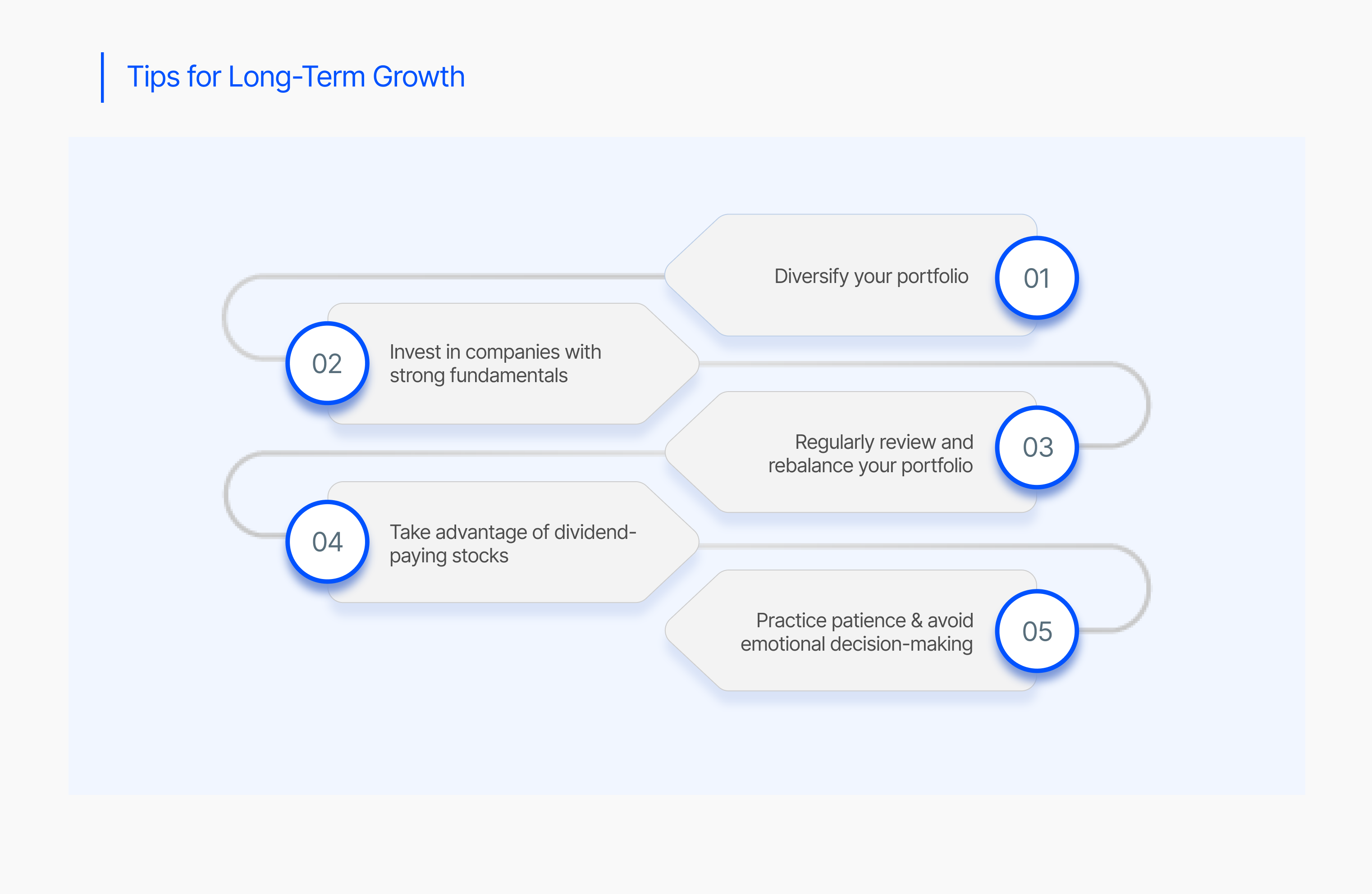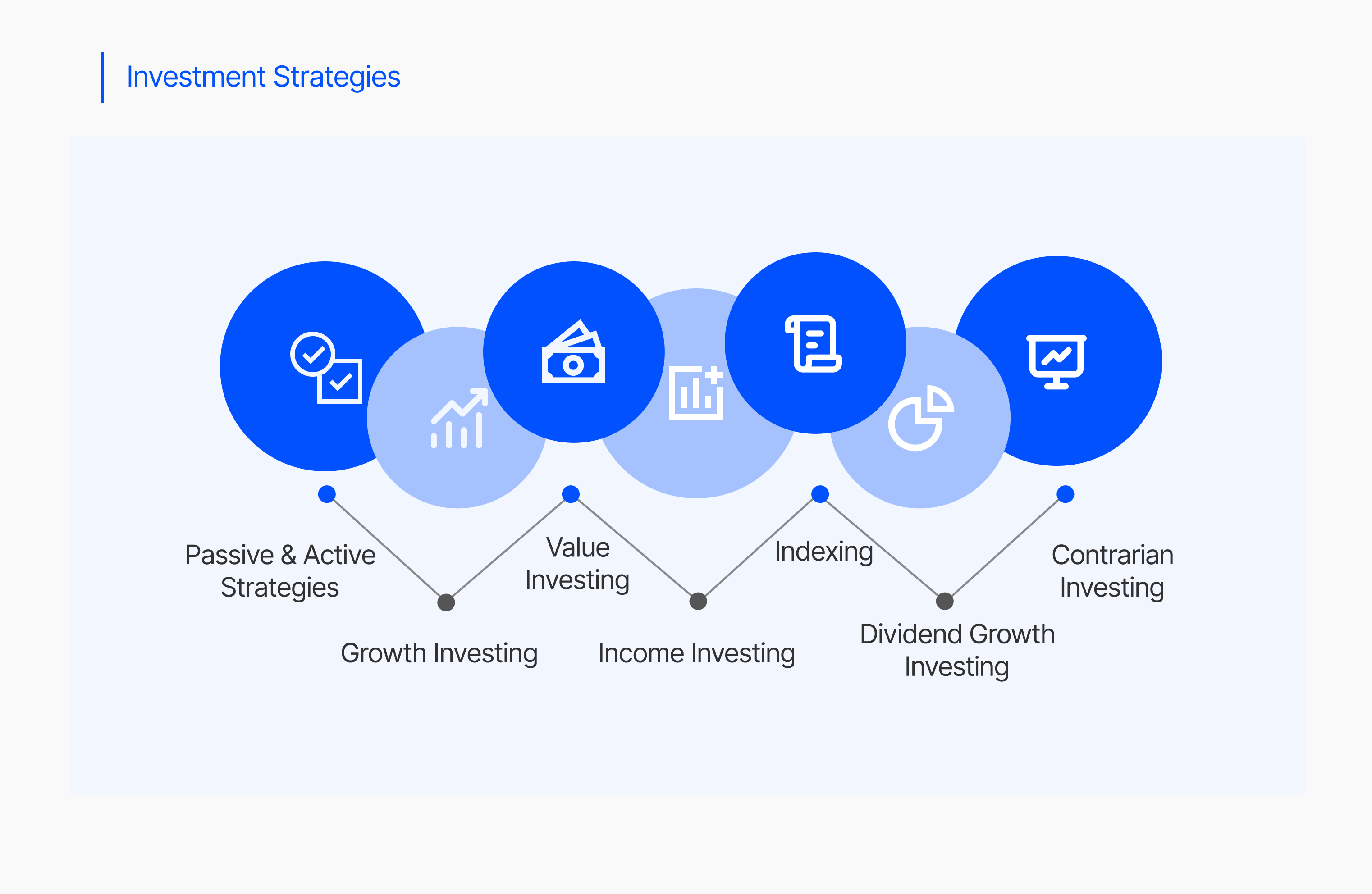Strategies for Long-Term Investors
The market can be highly unpredictable. Short-term fluctuations and slumps can lead even the wariest investor to panic. But there’s a wealth of opportunity for those with a long-term perspective, the market offers a wealth of opportunity. An article published in Investopedia states, “before trading, it's crucial to understand the fundamental principles and techniques that have stood the test of time”. This blog will explore key strategies that empower long-term investors to navigate the market confidently and build wealth over time.

Be goal-oriented
Before you take a dive, you must understand your risk tolerance and investment goals. You should decide whether you’re saving for retirement in 20 years, or a child's college education in 10. Your time limit will significantly impact your investment choices. For a distant retirement, aggressive investments with larger potential returns might be appropriate, but stability and lesser risk might be more important for a college fund.
Always diversify
Long-term investors can all agree with this philosophy. Keep your assets spread across multiple accounts! Invest in a variety of asset classes, such as commodities, equities, bonds, and real estate. This reduces risk since, in the event that one sector declines, others may continue to expand or remain stable, safeguarding your portfolio as a whole.
Embrace the dollar-cost average
There will always be market volatility. You can manage this by investing a certain amount at regular periods, regardless of the price, using dollar-cost averaging. By using this method, you can average out your cost per share over time by purchasing more shares during periods of low price and fewer during periods of high price.
Utilize cheap index funds
Index funds passively follow a certain market index, such as the S&P 500. They provide cheap fees, extensive diversity, and a track record of long-term development. A recent article in Investopedia highlighted that index funds focus on capturing the market's overall return, which is a strategy that works well for most long-term investors, in contrast to actively managed funds, which attempt to outperform the market.
Rebalance regularly
The market will fluctuate, but it’s a norm. Don’t resort to panic sell when the market is down. The market will always recover, as it has historically. However, regular rebalancing is key. Your asset allocation may deviate from your intended plan if different investments grow at different rates. Rebalancing keeps your portfolio in line with your risk tolerance by selling some of your high-performing assets and buying more of your underperforming ones.
Be patient
Long-term investing is a print, not a marathon. Focus on compounding returns, where your earnings generate additional earnings over time. Being patient under such circumstances allows you to weather market storms and benefit from the power of compounding growth.
Seek professional guidance
While these strategies empower you to take control of your investments, consulting a financial advisor can be beneficial, especially for complex financial situations.

The bottom line
Long-term investors can manage the market with confidence and create a solid financial future by implementing these strategies. The key is to be disciplined, have a strategy, and refrain from making quick, reckless decisions. By exercising patience and keeping an eye on the big picture, you can use the market's power to help you reach your financial goals.
Contributor

Adeel Ahmed
Research Editor

Share With